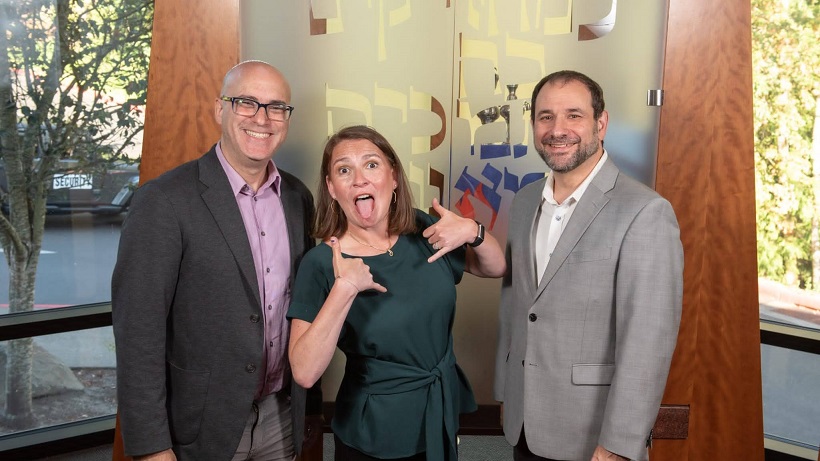A few months ago, as my ever-curious 9-year-old was chatting with me about Shabbat and what she was learning in school, she asked me the question I dread. “Mommy, if we keep Shabbat, why do YOU work on Shabbat?” This was after a particularly busy Shabbat with back-to-back services and programming, and it felt like I was gone the entirety of Shabbat. In our house, we’ve got some clear Shabbat boundaries. We don’t do art on Shabbat, and we don’t spend money or go shopping on Shabbat. We do spend time together whenever possible. However, Shiri learned in school that we don’t work on Shabbat. So, how do we reconcile the work that I do?

This week we read Parshat Emor, and we once again find ourselves deep into the commandments surrounding Jewish practice. Parshat Emor focuses on the rules and regulations for the priests, along with the obligations of the Israelites. It covers the observance of certain holidays, including mentions about the holiness of Shabbat, other holidays we are to celebrate throughout the year, and the ways in which we are to treat fellow humans and even animals. The majority of these rituals are meant to be done in public, with the entire community a part of them.
As the laws of holidays and Shabbat are introduced, the Torah uses the word melachah. This word is translated loosely as “work,” but a more precise definition would be “creative endeavors.” The notion is that God stopped creating to celebrate Shabbat, and so should we. That means that Shabbat is about the work of our souls, not the work of our hands.
The question remains: How do you explain this to a 9-year-old? The best answer is the honest one, which is yes, my job includes Shabbat, but I do all my preparation before Shabbat so that I too can be fully present in services and with our community. Being fully present requires preparation. There’s a reason we don’t mourn publicly on Shabbat or create new “things.” It’s because this allows us to live in the moment and actually experience our Judaism. We turn off the alerts on our phones and prepare our food in advance so we won’t stress about our weekday jobs or worry about our next meal. We need the comfort of having as much planned for as we can so we’re not checking off a list, not to mention the fact that checking things off a list would involve writing.
Do I work on Shabbat? It depends on what you call work. Technically, my fellow clergy and I are all required to be present on Shabbat. However, I don’t consider it work to guide a congregation in spirit and prayer. That is a joy, that is a gift, and that is why I’m a rabbi.



